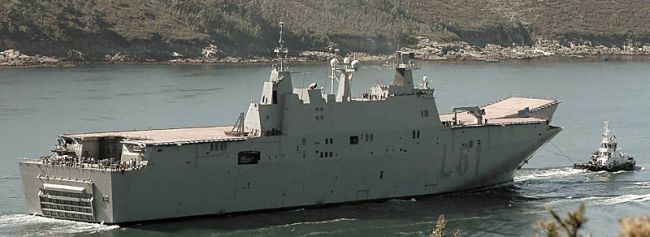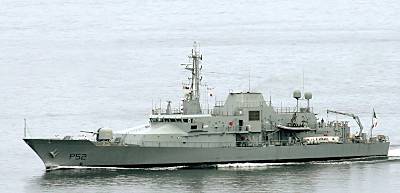WASHINGTON — The NATO allies are in Afghanistan for the long haul and have made both significant progress and significant commitments to the effort there, the alliance’s supreme allied commander for Europe said here today.
The NATO-led International Security Assistance Force will have roughly 98,000 U.S. troops and about 43,000 allied troops by fall, Navy Adm. James G. Stavridis told the Defense Writers Group. NATO’s troop contribution in Afghanistan is “significant,” he said.
Casualty figures, the admiral said, show that NATO has stepped up. About 1,100 U.S. servicemembers have been killed in Afghanistan, and the other coalition members have lost 650.
“Per capita, Estonia has suffered the most,” Stavridis said, “followed by Denmark, Great Britain, Canada and the United States.”
With Mongolia, Montenegro and South Korea joining the coalition, 47 nations are now working together in Afghanistan, Stavridis noted. “The allies are in this in a substantial way,” he said. “Could they do more? Yes.”
Though the allied contribution is substantial, he said, the coalition needs more people to train the Afghan security forces.
Success in Afghanistan will come, Stavridis said, when the Afghan army and police can take over the security mission. About 5,200 more trainers are needed in Afghanistan. Roughly 3,600 are on the ground now. NATO’s share of the overall training mission is 1,600.
“Right now, I’ve got on the ground or committed 1,150” trainers, the admiral said. “So, I need 450 [more].”
The training mission in Afghanistan, Stavridis said, is his highest priority. As he works with NATO nations’ defense chiefs to fill the shortfall, he added, U.S. soldiers will step in to bridge the training gap. The admiral thanked those soldiers for serving a 90-day tour, saying there is no more important job in Afghanistan today.
The Afghan security forces are making progress, and their contributions must be factored into any plan moving forward in the country, Stavridis said. Afghanistan has about 200,000 soldiers and police today, and that number will grow to around 250,000 in the fall, he said. The forces are growing in size and capabilities, he added, while the desertion rate has gone down. And improvements in pay – both the amount and how it makes it to the soldiers and police – have been a factor in recruiting and retention.
Stavridis said four factors will be essential to coalition success in Afghanistan. First among these, he said, is strategic communication.
“It’s effectively explaining what we’re doing and why we’re doing it in the capitals of the alliance and in Afghanistan,” he explained.
The second is the civil-military balance. Civilian aid is just as important as military force in this new world, he said. Mark Sedwill, the senior NATO civilian representative in Afghanistan, is getting the civilian effort working in tandem with the military effort, the admiral said.
Third is protecting the people of Afghanistan. Stavridis echoed the sentiment expressed by ISAF Commander Army Gen. Stanley A. McChrystal, who has said, “We will not kill our way out of this.”
“We have got to make protecting the Afghan people the center of gravity,” Stavridis said. “We’ve made some progress in that, but every incident [of civilian casualties] hurts us.”
Finally, the admiral said, training the Afghan security forces is crucial to success.
Stavridis said that while much remains to be done, Afghanistan has seen overall progress, and the alliance has made a difference.
“Afghanistan is often called the graveyard of empires,” he said. “But we’re not an empire, and the coalition has no desire to stay in the country any longer than necessary.”
Source:
U.S. Department of Defense
Office of the Assistant Secretary of Defense (Public Affairs)

 von
von 
